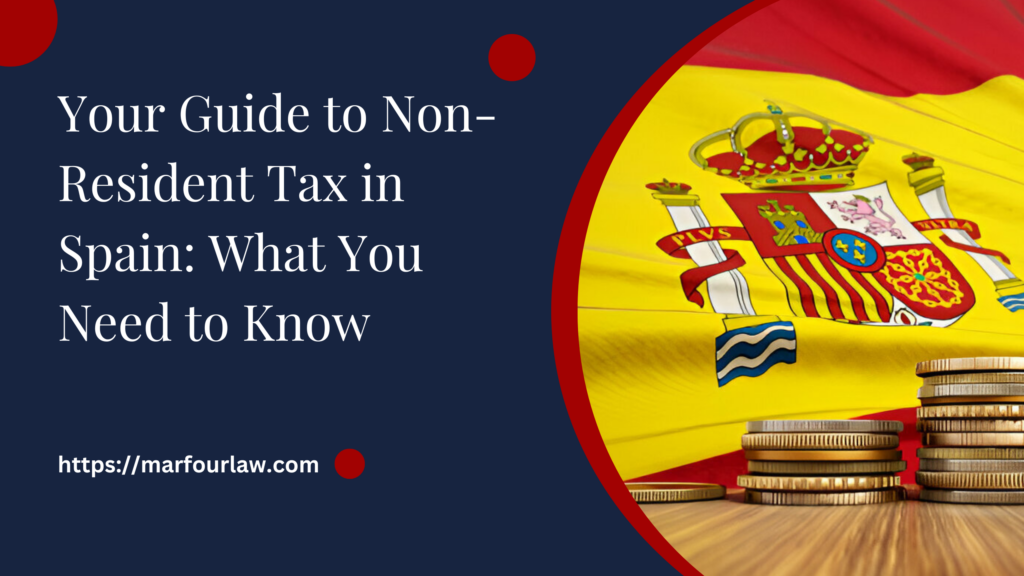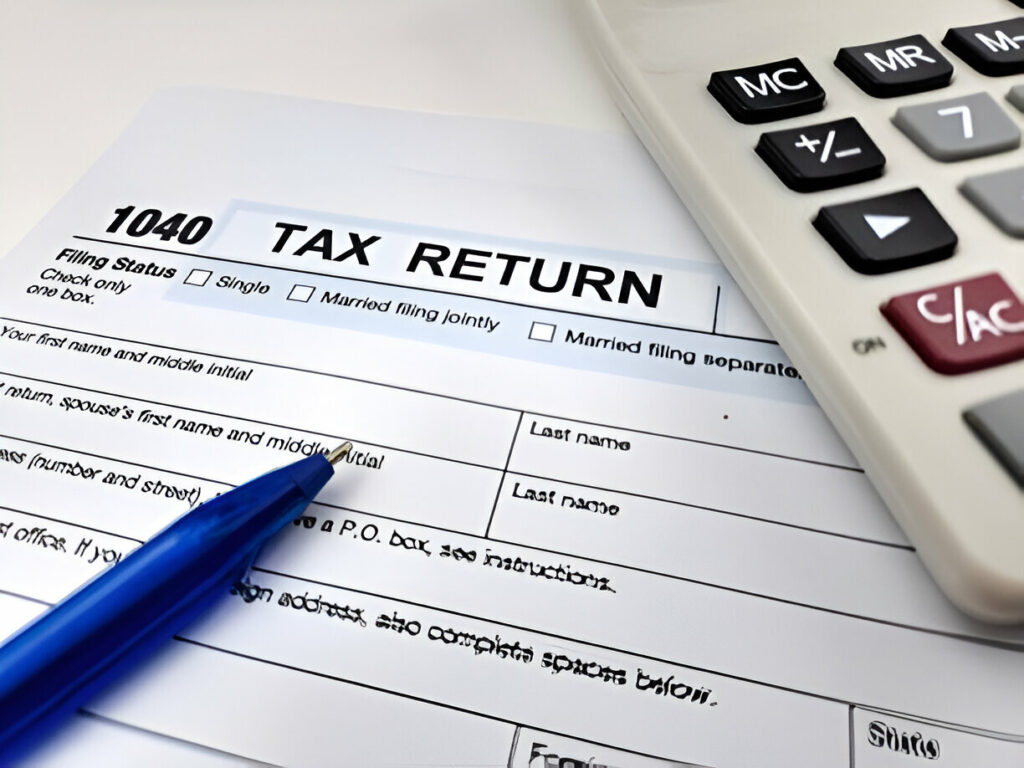Non-Resident Tax in Spain
Non-Resident Tax in Spain: Are you a non-resident property owner in Spain? Understanding your tax obligations is key to managing your finances effectively.

The Spanish tax system requires non-residents to fulfill specific responsibilities, including reporting income from property rentals or sales.
Whether you’re navigating tax filings or seeking clarity on deductions, familiarizing yourself with tax for non-residents in Spain ensures compliance and peace of mind. Let’s explore what you need to know to manage your Spanish non-resident tax obligations smoothly.
Understanding Non-Resident Tax in Spain
Living abroad or owning property in Spain comes with specific tax responsibilities. Here’s what you need to know about taxation for non-residents in Spain to stay compliant and informed.
Who Needs to Pay Non-Resident Tax in Spain?
If you own property in Spain but do not reside there, you’re likely subject to non-resident taxes. These taxes apply whether you use the property for personal use or rental purposes.
Non-resident taxes in Spain apply to individuals who own property but are not classified as residents for tax purposes. Whether you use the property solely for personal vacations or rent it out, you are required to fulfill tax obligations to the Spanish government.
Types of Non-Resident Tax in Spain
There are primarily two types of non-resident taxes in Spain: income tax and property tax. Income tax applies to rental income earned from Spanish properties, while property tax is based on the property’s assessed value.
Non-resident income tax in Spain is levied on rental income generated from Spanish properties. Property tax (known as IBI) is an annual tax based on the property’s cadastral value, similar to property taxes in other countries.
Tax Obligations for Non-Residents
Non-residents must file tax returns annually, even if they do not generate rental income. Understanding these obligations helps you avoid penalties and stay compliant with Spanish tax laws.
Non-residents are required to submit tax returns to the Spanish tax authorities each year, regardless of whether they have rental income. This filing ensures that the authorities have accurate information about your property ownership and financial activities related to it.
Calculating and Paying Taxes
Calculating non-resident taxes involves understanding tax rates and deductions available. Depending on income and property use, taxes are typically paid quarterly or annually.
To calculate non-resident taxes, you need to know the applicable tax rates for income and property taxes. Deductions may include expenses related to property maintenance and management. Taxes are paid either quarterly or annually, depending on the specific circumstances and amounts involved.
Legal Considerations and Resources
Navigating Spanish tax laws can be complex. Utilize resources like tax advisors or online guides to ensure you meet all obligations accurately and efficiently.
Given the complexities of Spanish tax laws, seeking guidance from tax advisors or using online resources can be invaluable. These resources can provide insights into recent tax changes, legal considerations, and strategies for optimizing your tax situation as a non-resident property owner in Spain.
How to Understand Taxes as a Non-Resident in Spain?
They are owning property in Spain as a non-resident involves understanding and managing specific tax obligations. Here’s a clear guide to help you navigate through the complexities of tax for non-residents in Spain.

Understanding Your Tax Status
As a non-resident property owner in Spain, your tax obligations are determined by whether you rent out your property or use it solely for personal purposes.
Your tax status in Spain depends on whether you generate rental income from your property or use it solely for personal purposes. Understanding this distinction is crucial for fulfilling your Spanish non-resident tax obligations.
Types of Taxes You Might Encounter
Non-resident property owners in Spain typically deal with two main types of taxes: income tax on rental earnings and property tax (IBI).
Income tax is levied on rental income earned from Spanish properties, while property tax (IBI) is an annual tax based on the property’s value. Knowing about these taxes helps you prepare for your financial obligations as a non-resident in Spain.
Filing and Reporting Requirements
Non-residents are required to file tax returns annually, regardless of whether they earn rental income. Understanding these requirements ensures compliance with Spanish tax laws.
Filing tax returns annually is mandatory for non-residents in Spain, even if you do not earn rental income. This ensures that the Spanish tax authorities have accurate information about your property ownership and financial activities.
Calculating and Paying Your Taxes
Calculating non-resident taxes involves knowing the applicable tax rates and any deductions you may qualify for. Payment is typically made annually or quarterly, depending on your circumstances.
To calculate your non-resident taxes accurately, consider the applicable tax rates and deductions available. Whether paying annually or quarterly, understanding these details helps you budget effectively and avoid penalties.
Seeking Professional Guidance
Navigating Spanish non-resident tax laws can be complex. Consider seeking advice from tax advisors or using online resources to ensure you meet all obligations correctly.
Given the complexity of Spanish tax laws, consulting tax advisors or utilizing reliable online resources can provide invaluable guidance. They can offer insights into recent tax changes, legal considerations, and strategies to optimize your tax situation as a non-resident property owner in Spain.
Understanding Your Tax Responsibilities in Spain with Marfour
Owning property in Spain as a non-resident comes with specific tax obligations. Here’s a practical guide from Marfour to help you grasp and fulfill your Spanish non-resident tax duties.

Determining Your Tax Status
As advised by Marfour, your tax status in Spain depends on whether you rent out your property or use it personally.
As a non-resident, Marfour emphasizes that your tax status in Spain is determined by whether you earn rental income from your property or use it exclusively for personal purposes. Understanding this distinction is crucial for meeting your Spanish tax obligations.
Identifying Taxes You Need to Pay
Non-resident property owners, guided by Marfour, typically face two main taxes in Spain: income tax from rental earnings and property tax (IBI).
In Spain, as highlighted by Marfour, non-resident property owners are subject to income tax on rental earnings and an annual property tax (known as IBI) based on the property’s value. Being aware of these taxes, as outlined by Marfour, helps you prepare financially as a non-resident property owner in Spain.
Meeting Filing Requirements
Non-residents, according to Marfour, must file tax returns annually, regardless of whether they earn rental income, to comply with Spanish tax laws.
Filing annual tax returns, as emphasized by Marfour, is mandatory for non-residents in Spain, even if your property doesn’t generate rental income. This ensures accurate reporting to Spanish tax authorities regarding your property ownership and financial activities.
Understanding Tax Calculation and Payment
Marfour advises that calculating non-resident taxes involves understanding applicable rates and possible deductions. Payments are typically due annually or quarterly.
Accurately calculating non-resident taxes, as advised by Marfour, requires understanding applicable tax rates and potential deductions. Whether paying annually or quarterly, this knowledge, as provided by Marfour, helps you budget effectively and avoid penalties.
Seeking Expert Guidance
Navigating Spanish non-resident tax laws can be challenging, so Marfour recommends seeking advice from tax advisors or using online resources for assistance.
Given the complexities of Spanish tax laws, Marfour advises consulting tax professionals or reliable online resources for invaluable support. They offer insights into recent tax changes, legal considerations, and strategies to optimize your tax situation as a non-resident property owner in Spain, according to Marfour.
FAQs
These FAQs provide essential information about Non-Resident Tax in Spain, helping property owners understand their obligations and responsibilities under Spanish tax law.
What are non-resident taxes in Spain?
Non-resident taxes in Spain refer to the taxes imposed on individuals who own property in Spain but are not classified as residents for tax purposes. These taxes primarily include income tax on rental earnings and property tax based on the property’s value.
Who needs to pay Non-Resident Tax in Spain?
Non-resident property owners in Spain are required to pay taxes, regardless of whether they use the property for personal purposes or generate rental income. If you own property in Spain and are not a tax resident, you must fulfill these tax obligations.
How is non-resident income tax calculated?
Non-resident income tax in Spain is calculated based on the rental income earned from Spanish properties. The applicable tax rate is typically applied to the gross rental income, and certain deductions may be available for allowable expenses related to property maintenance.
Conclusion
In conclusion, navigating Non-Resident Tax in Spain involves understanding and fulfilling obligations such as income tax on rental earnings and property tax (IBI). Annual filing requirements ensure compliance with Spanish tax laws, emphasizing the importance of accurate reporting to authorities.
Consulting with tax professionals or utilizing reputable resources can provide invaluable support in managing your tax responsibilities effectively while owning property in Spain.
Experts in Non Resident Taxes In Spain
Not being a Spanish resident, but having tax obligations in a foreign country can be a nightmare.
Spanish Law considers you as a non-tax resident if you are a foreigner in Spain, if you spend 6 months or less in Spain within one calendar year, or if you work professionally in Spain.
Depending on your circumstances, payments could be made annually or quarterly.
Marfour International Law Firm can help you to ensure that you file your tax declaration on time in order to avoid surcharges.
How Marfour International Law Firm can assist you?
- Offer you tailored legal advice.
- Prepare and submit your tax declaration on your behalf.
- Defend your financial interests.
Do not hesitate to contact our tax lawyers in Spain for more information.
submitted tax declarations
%
clients satisfied
Clients assisted
testimonials
![]()
![]()
MARFOUR SUBMITS YOUR NON RESIDENT TAX DECLARATIONS ON YOUR BEHALF
Contact us, and Marfour International Law Firm will assist you with your Non Resident Tax Declarations in Spain on your behalf. One of our specialized English-speaking lawyers will contact you immediately and advise you in the best way possible. Do not hesitate to send us your enquiry.

